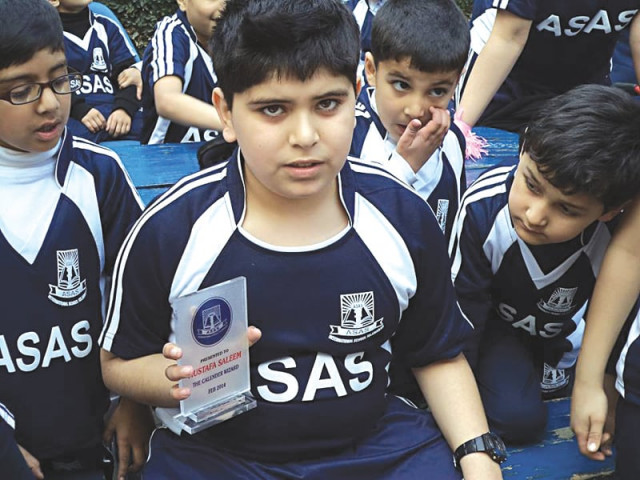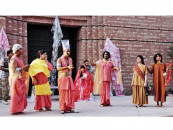Differently-abled: Making a case for customised education
Autistic child has special talents that require channelling.

A sixth grader at a private school in Islamabad, Mustafa knows all students and staff at the school by name. Give him any date from the year 2000 to 2050, and he will be able to tell you what day the date falls on. These talents have earned him the nickname Calendar Wizard at his school.
He speaks Urdu, English and Pashto fluently. Multitasking is a breeze. Mustafa can play games on his laptop, hold a conversation with several people and recall facts at the same time. Give him several mobile phone numbers and he’ll recall them instantly. When the family takes a trip, Mustafa looks up their destination via Google Earth and is able to memorise directions without difficulty.

“He remembers vivid details from past events. Whatever he has experienced is imprinted in his mind,” said Saleem Khan as he talked about his son, born with autism and Asperger’s syndrome. Asperger’s is a form of autism, a lifelong disability that affects how a person makes sense of the world, processes information and relates to other people. Individuals with Asperger’s disorder usually want to fit in and interact with others; they simply don’t know how to do it. While they may have good rote memory skills, they have difficulty with abstract concepts.
According to his mother Ghazala, Mustafa became very upset when no other school would admit him owing to his learning ‘disabilities’. However, his school has welcomed him and other differently-abled students.
“We have a set-up here for dyslexic and autistic students,” said Tabbassum Nisar, the school principal. She added that although the school is a mainstream one from playgroup to A’ Levels, a class of 12 differently-abled students has been instituted after Mustafa was admitted as a student. With a focus on inclusive education, the school aims to integrate these students into the mainstream.
“Our focus is to make them independent, develop their social skills and equip them to handle themselves in practical life and find employment,” Nisar said. In order to encourage social interaction, the class has a 2:1 ratio of students and teachers, a clinical psychologist and a speech pathologist.
“Such students don’t want sympathy; they need acceptance. Generally, there are mainstream students or mentally or physically challenged ones but here is a middle category,” Nisar explained. “They are just very bright, and have so much information at their fingertips that they are unable to channel it.”
Instead of taking pity, people need to treat such children with empathy and compassion, she said. “I see special abilities in Mustafa as compared to the rest of the class and I want a platform where somebody can sponsor him so he can go abroad since there is greater awareness, research and proper facilities at schools there.”
While some parents have come together and formed institutions on a self-help basis, schools are often ill-equipped to cater to the needs of each individual child.
“There should a comfortable place for these kids where they can be identified on the basis of their abilities in different categories and not be huddled together as mentally and physically challenged students. Every child has his or her own need, personality, individuality, talent and ability. Everybody is different and with every child, you have to use a different methodology,” Nisar added.
What is: Autism and Asperger’s syndrome
Autism is a general term for a group of complex disorders of brain development. These disorders are characterised, in varying degrees, by difficulties in social interaction, verbal and non-verbal communication and repetitive behaviours.
The National Autistic Society (NAS), UK explains it is a spectrum condition, which means that while all people with autism share certain difficulties, their condition will affect them in different ways. Some people with autism are able to live relatively independent lives, but others may have accompanying learning disabilities and need a lifetime of specialist support. People with autism may also experience over- or under-sensitivity to sounds, touch, tastes, smells, light or colours.
Asperger’s syndrome is a form of autism that affects how a person makes sense of the world, processes information and relates to other people. NAS explains that people with Asperger’s syndrome are often of average or above-average intelligence. They have fewer problems with speech, but may still have difficulties with understanding and processing language.
Published in The Express Tribune, July 7th, 2014.



















COMMENTS
Comments are moderated and generally will be posted if they are on-topic and not abusive.
For more information, please see our Comments FAQ